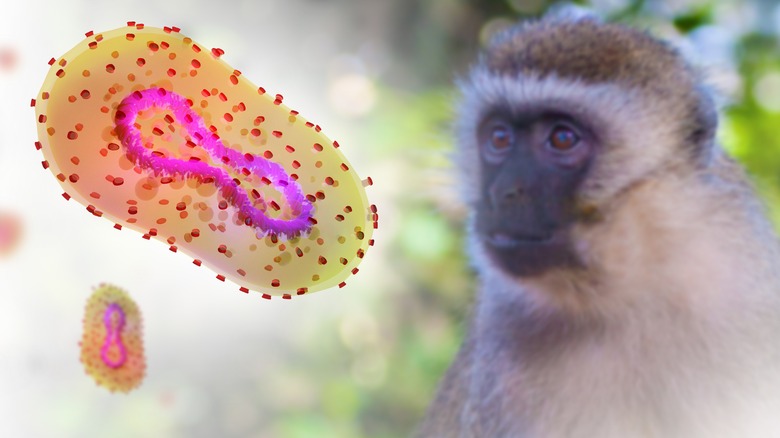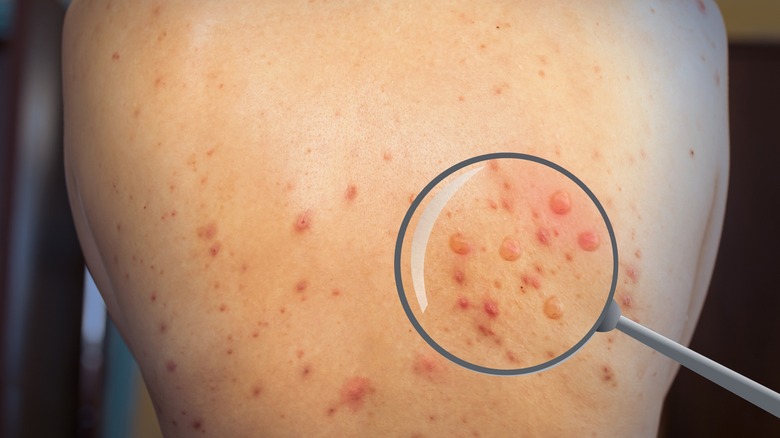What Makes Monkeypox A Global Health Emergency?
On July 23, 2022, the World Health Organization (WHO) declared monkeypox a global health emergency, or a public health emergency of international concern (PHEIC), as the virus spreads across Europe and other areas of the world, according to The New York Times. In a statement, the WHO said that while the number of monkeypox cases are on the rise, it still considers the global risk of the virus moderate, except for Europe, in which the risk is considered high. According to the WHO, a PHEIC is an "extraordinary event ... which (i) constitut[es] a public health risk to other States through the international spread of disease, and (ii) which may potentially [require] a coordinated international response."
The Centers for Disease Control and Prevention reports that there are 16,836 confirmed cases of monkeypox globally in 74 locations. Of those cases, 16,593 have occurred in countries that do not typically deal with cases, including the United States. The U.S. has reported 2,890 cases, second only to Spain, which has reported 3,125 cases.
Monkeypox appears to spread rapidly, and in new ways
One of the reasons why monkeypox has been declared a public health emergency is because it is spreading swiftly, and doing so in new ways. WHO Director-General Tedros Adhanom Ghebreyesus explained in a statement that the world is witnessing an "outbreak that has spread around the world rapidly, through new modes of transmission, about which we understand too little."
Monkeypox can spread from person-to-person contact through direct contact with bodily fluids, rashes, or scabs. It also spreads through respiratory secretions during close contact. People could become infected if they touch items that an infected person has touched. Monkeypox might also spread through scratches and bites of infected animals. Pregnant people can also spread the virus to their fetus (via the CDC). That said, those in the highest-risk populations are "men who have sex with men, especially those with more than one partner," per the WHO.
The new version of monkeypox is mutating
Research indicates that new strains of the monkeypox virus are different from past versions because they mutate at a fast pace. A recent report published in Nature Medicine studied samples from patients infected with the virus from 2018 to 2019, and determined that it had mutated 50 times. David Weber, MD, MPH, told Health that new strains of the virus make it "unpredictable." He added that one characteristic of newer strains is that some people don't develop the usual symptoms that include fever, chills, or swollen lymph nodes prior to developing a rash.
The CDC recommends people avoid close contact with anyone who looks like they might have monkeypox. Washing sheets, clothing, and/or other items of those infected also helps reduce the risk of contracting the virus. In addition, people who are at high risk of becoming infected should get vaccinated.


